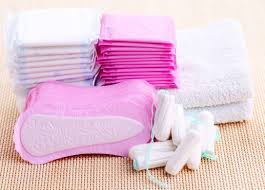Initiative to produce locally-made sanitary pads

Kathmandu / June 18: Nepal Natural and Human Resources Development Association (NAHUDA), a local non-government organization, is organizing a three-day workshop on making homemade sanitary pads made of cotton and flannel. The workshop which started on June 16 will conclude on June 18. Some 35 women from Naulo Bihani Tol Bikash Sanstha in Tokha-8, Kathmandu, are participating in the workshop.
Radha Gyawali, manager of NAHUDA, said that the sanitary pads available in the market can be a health hazard to young women.
“Different brands of sanitary pads are available, and you don’t know what chemicals are being used while making them,” Gyawali said, adding, “Often, if used for a long duration, women have complained of irritation and rashes.”
Therefore, Gyawali said, the initiative to make handmade cloth pads was taken. Easy to make, cheap to produce, safe to use, and easily accessible, these pads can be reused and can last for over a year.
Kopila Pokhrel, a participant of the workshop, described the sanitary pad to be “a low-cost and reliable alternative.”
Gyawali also explained how the non-biodegradable sanitary pads sold in the market could be a potential environmental hazard.
“The sanitary pads, which cannot be burnt, aren’t easy to dispose, especially in a country like Nepal where waste management is a big challenge,” Gyawali said. If not properly disposed, it can lead to bacterial infections. On the other hand, the cloth pads can simply be washed and reused.
Maya Shrestha, another participant, complained that using sanitary pads is uncomfortable and often causes uneasiness. “The workshop has provided a solution to the problem,” said Shrestha. Currently, they sell a set of two sanitary pads and six cloth changers at Rs 250 in the market.
Though the use of sanitary pads doesn’t have a direct relation to cervical cancer, using it for long durations at a time can be unhealthy. “Products of different qualities are provided at the market and it is essential that consumers are aware of the type of products they use,” said Dr Eliza Shrestha from Bhaktapur Cancer Hospital.
